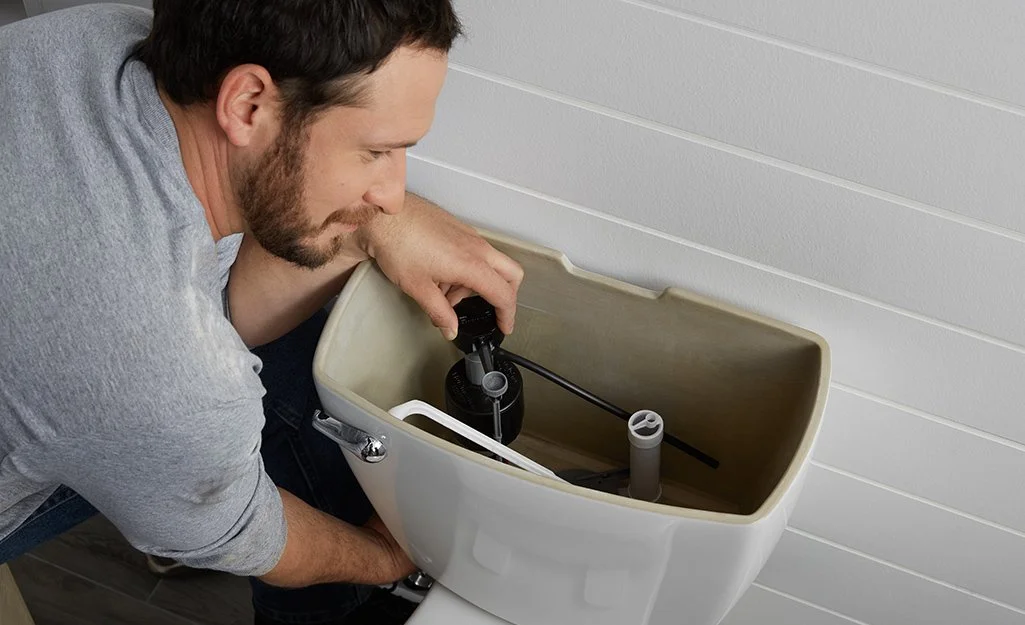How to Fix a Toilet That Won't Flush
RH Business Marketing Solutions
The chances of clogging or any other mechanical issue in the toilet flush are high due to high usage. Once you figure out the problem, you do not need to call a plumber for fixing a toilet that won’t flush. Instead, you might be able to do it yourself.
In this guide, we will help you find the issue and give you helpful advice that you need to follow to fix a toilet that won’t flush.
Reasons and solutions for fixing a toilet that won’t flush
There might be several reasons your toilet is not flushing and also different toilet plumbing repairs needed. First, sort the problem, then follow the steps to fix it.
Check the water level of a tank
Problem
The water level in the cistern (flush tank) is an obvious thing you should check. Your tank should be 80% filled, or water should be one inch down from the overflow tube for a successful flush.
Solution
Remove the lid to check the water level. If the water level is low, the reason could be the water valve. The water valve behind the toilet could be off accidentally during cleaning. If the tank is still not flushing, check the valve first. This means the water level of a tank is not reaching the appropriate level. The reason could be the cracks in the overflow tube. If this is the case, you need to replace the overflow tube.
If there is no issue with the overflow tube, you should adjust the inlet valve. Unscrewing the inlet may sometimes solve this issue. But beware, excessive inlet unscrewing may cause overflow.
If your toilet is clogged
Problem
When you push the flush button, the toilet won’t flush properly. Instead, the water inside the bowl fills or starts overflowing; this is a sign of clogging. Your water closet may be clogged due to the disposal of too much toilet paper, toilet towels, and diapers.
Solution
If you are facing an issue and water is building up in the bowl, then wait for a few minutes to check if the clogging is partial or complete. If the water level is slowly moving down, this shows the toilet is partially clogged, and you do not need to bucket out some water.
Use a rubber, bell-shaped plunger and plunge into the toilet. Push the plunge in a way that the air does not enter while plunging.
If you are not satisfied with the first solution, take a gallon of warm water, add some liquid detergent and pour the water into the toilet abruptly. The warm water and detergent provide enough lubrication to pass the clog from the pipe.
The issue with the flush flapper
Problem
You need to check the flapper inside the tank if the above two issues are not there. When you remove the cistern lid, you will find a red or black color inflated balloon-shaped rubber flapper. When you flush the toilet, the flapper allows the water to release from the tank and closes afterward.
This flapper may be wrapped, broken, or deteriorated over time.
Solution
If you find that the flapper has broken, you need to replace it with a new one. The flapper is a cheap part you can buy from any hardware shop.
Check the lift chain of the water tank
Problem
Once you open the lid of the tank, you will see the chain lift hooked with the flapper. When you flush the tank, the chain lifts the flapper upward, so the water rushes out, enters the bowl, and flushes the toilet.
If the flapper is intact and there is no issue with the flapper, then check the chain lift. If it is hooked with the flapper or not.
Another thing to check in the chain lift is the chain slack. The chain should have half an inch of slack. If the chain has too much slack, it will quickly close the flapper, and enough water will not flush out.
Solution
In case of an unhooked flapper, hook the chain back with the flapper using the screwdriver. If there is too much slack in the chain, you can reduce the chain length by hooking it with the nearer link. Keep in mind there should be no extra chain otherwise, the flapper will not work properly.
Blocked toilet inlet holes
Problem
Toilet inlet holes may clog due to mineral deposition. For instance, calcium and lime deposits restrict the flow of water. Sometimes microbial growth may also cause blockage. Don’t need to worry about the inspection of the blocked rims. Take a wire and insert it into the hole. Take out the wire and check if there is any mineral or microbial buildup.
Solution
To clear this blockage, you can use vinegar, bleach, or a toilet cleanser, specifically designed for this purpose.
Call the professionals
If you are unable to understand what the issue is. Or if you are totally unaware of the tank parts or don’t know how to operate the basic tools, then don’t try to disturb the mechanism. Call a professional to inspect the issue and resolve it.
